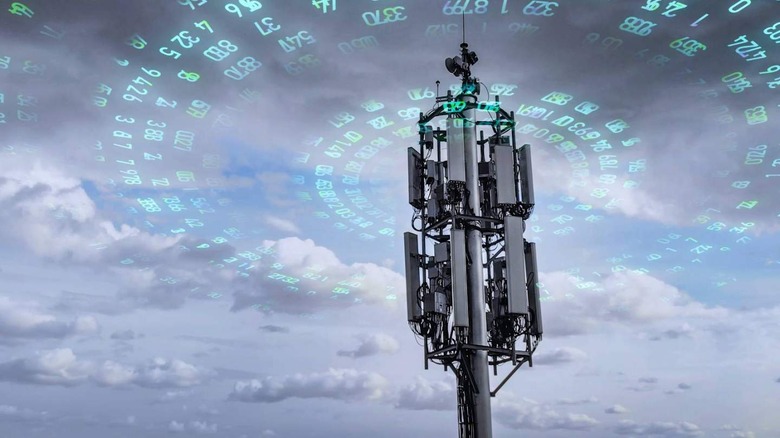Verizon Sets A C-Band 5G Deadline: Why That's A Big Deal
High-speed 5G connectivity is about to roll out in the US in a major way, making it possible for far more consumers to access the faster data speeds increasingly supported by new devices. The White House has announced a major agreement between government agencies and the two largest carriers in the US, Verizon and AT&T, that should work in everyone's favor.
C-Band 5G riles aviation industry
On January 4, the White House issued a statement on 5G deployment in the US, specifically on the issue of the C-Band spectrum, concerns about its potential impact on aviation safety, and the delays that have resulted. The issue has revolved around the 5G spectrum used to deliver faster speeds and whether it has the potential to interfere with vital air safety systems like radio altimeters.
Matters between the government and wireless carriers grew contentious in recent days when Verizon and AT&T both formally rejected a request to delay C-Band spectrum 5G deployment across the US. Though 5G is already available in some parts of the US, much of that coverage involves lower frequency connectivity that doesn't offer the sort of blazing-fast speeds consumers expect.
C-Band spectrum will change that, and so it's no surprise that Verizon and AT&T collectivity spent more than $68 billion on the spectrum during an FCC auction in early 2021. Both airlines and the FAA raised the alarm bell over possible aviation safety concerns, however, prompting the initial deployment delay.
The matter hasn't been resolved in the months since this initial spat, leading to a recent emergency appeal filed by Airlines for America (A4A) seeking another 5G rollout delay. It was that request that both Verizon and AT&T rejected in a joint letter, with each carrier's CEO pointing out that France has been able to safely deploy 5G with only exclusion zones around airports.
No more delays
The aviation industry was facing potential widespread disruptions, it had warned, if the carriers proceeded with their 5G rollout plans. The White House got involved in the matter as the threat of lawsuits and flight disruptions intensified, leading to the new agreement announced on January 4. Under this deal, Verizon and AT&T will hold off on deploying their C-Band 5G until January 19, giving the aviation industry a bit more time to prepare.
With this agreement in place, Verizon has announced plans to roll out its 5G Ultra Wideband network to 100 million consumers across the US in January. The coverage will span more than 1,700 cities, providing substantially faster speeds compared to the 4G LTE networks many people still rely on.
The expansion will bolster Verizon's 5G Home and 5G Business products in addition to making high-end smartphones worth the purchase. Assuming you're a customer on one of the Verizon plans with 5G access — and you have a smartphone or tablet that supports the higher-speed 5G network — you may soon experience much faster data speeds when away from WiFi, making it possible to easily stream high-resolution videos, multitask online, and more.


